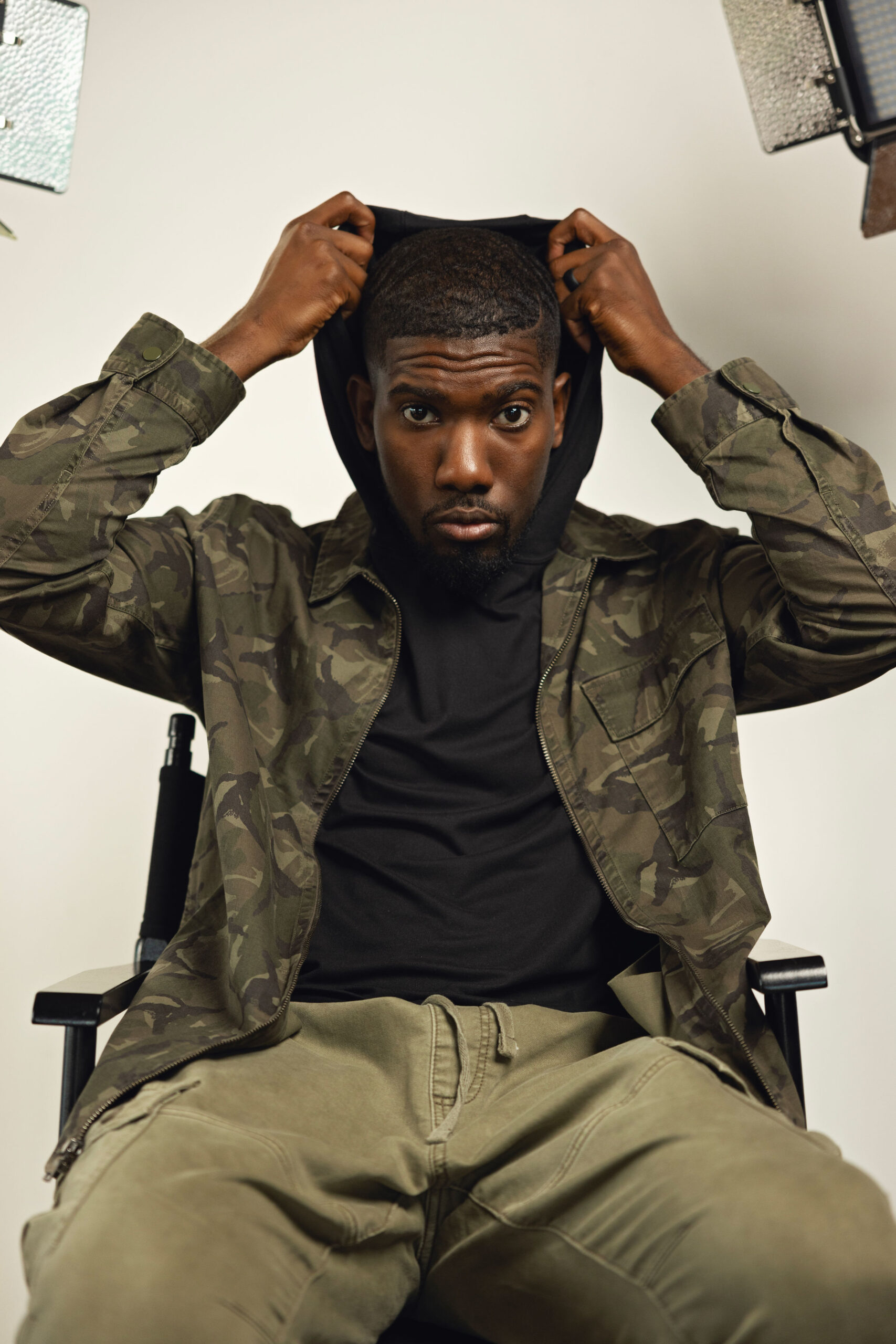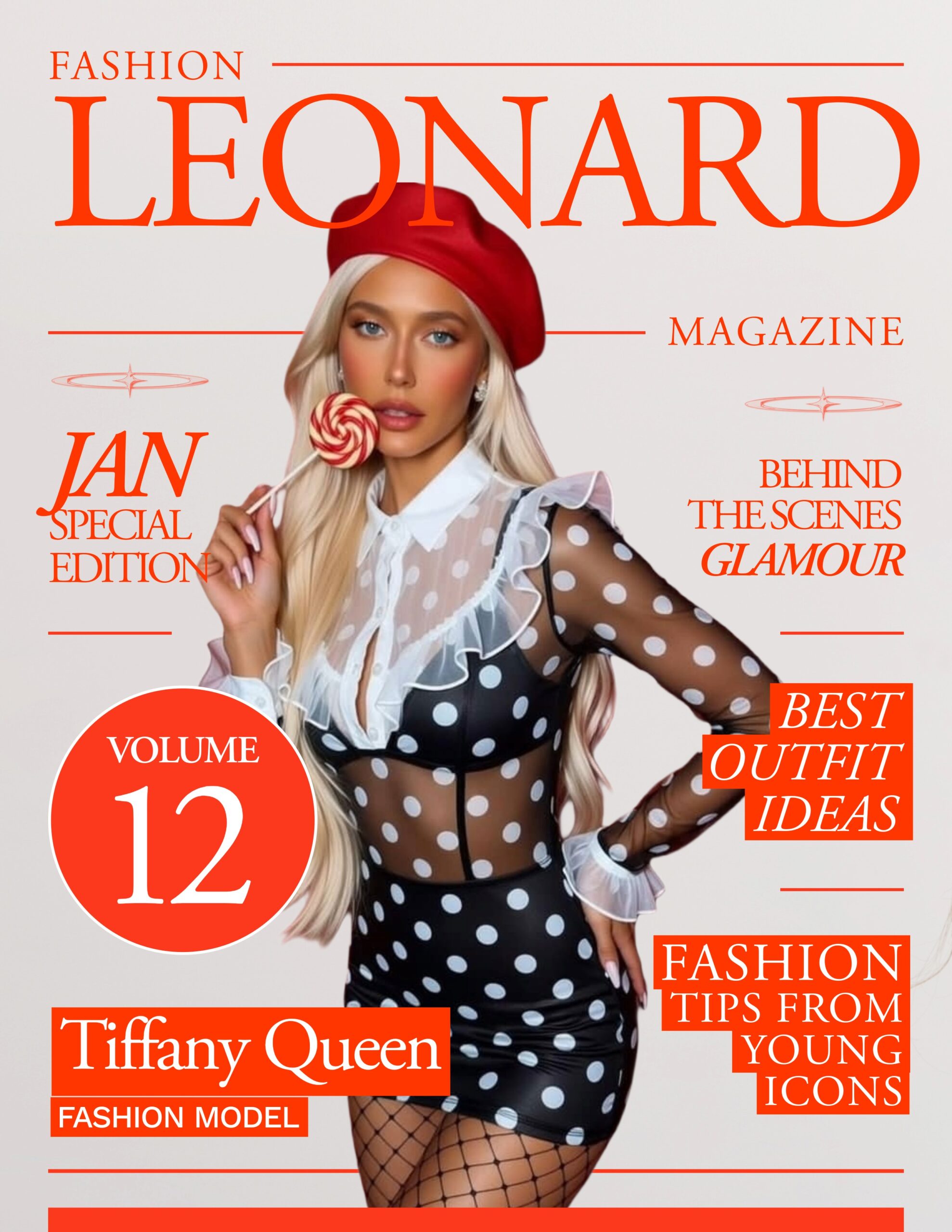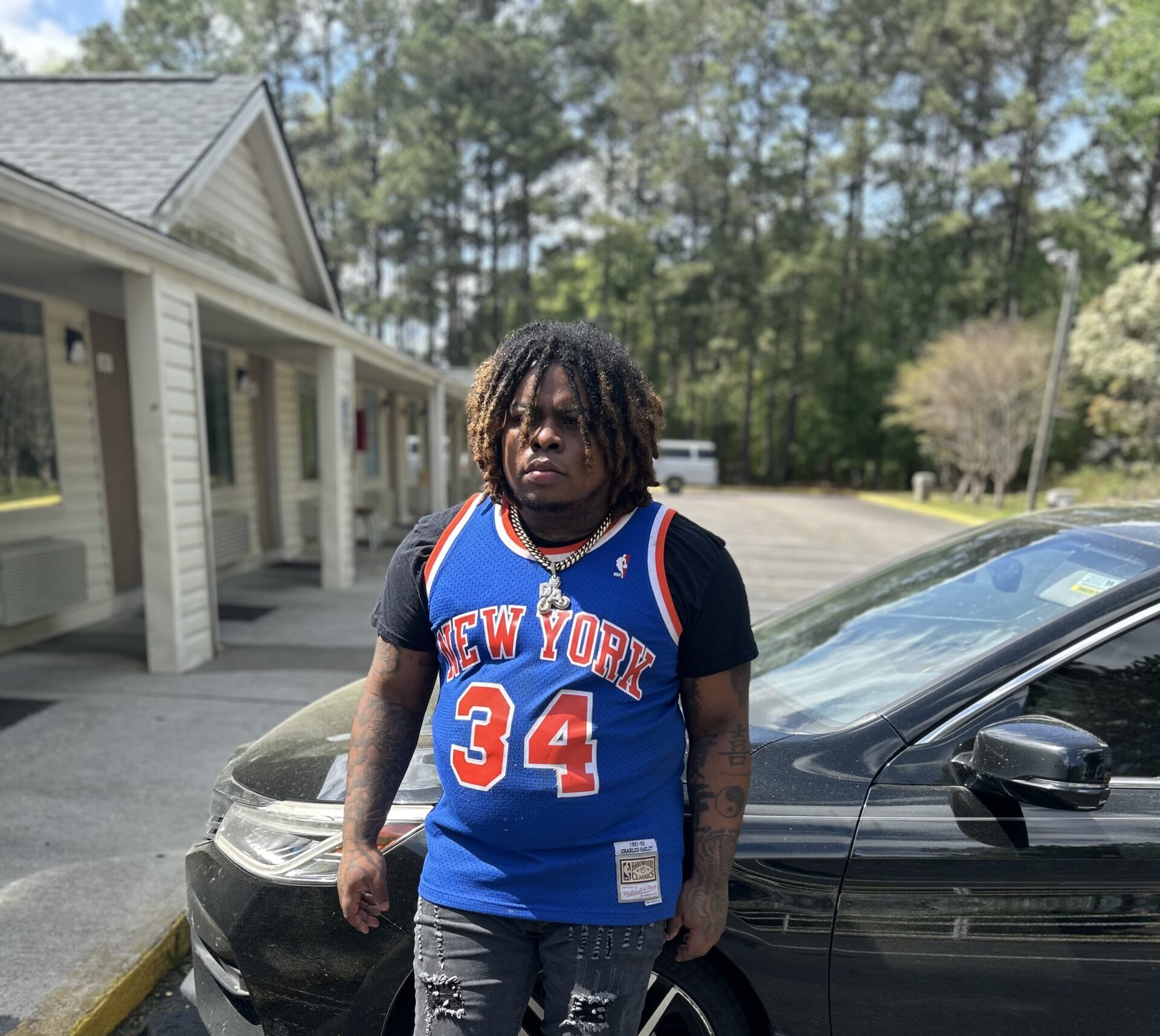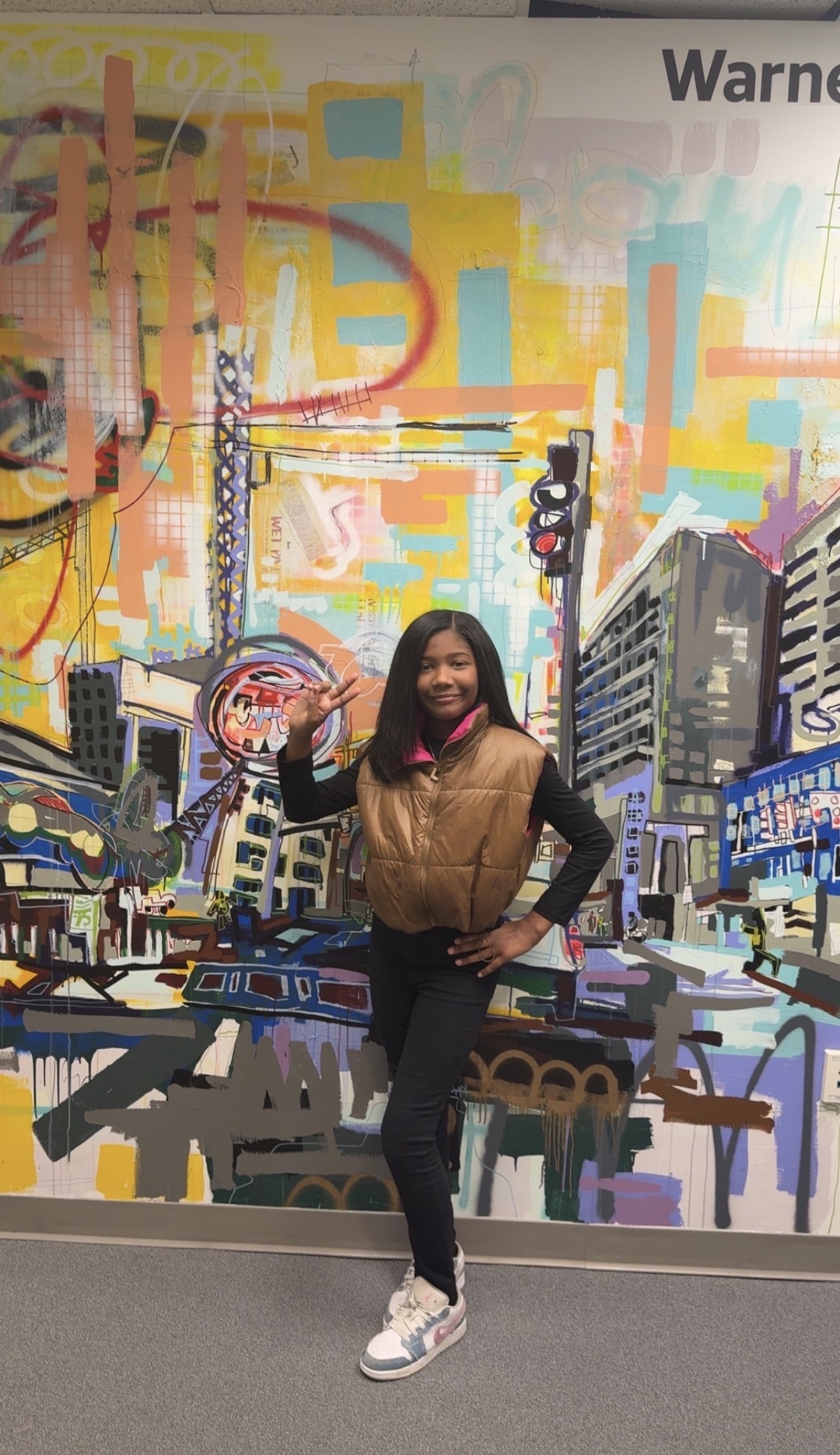Entertainment
Get to Know Jeremy Hines

1. Can you tell our readers about what really inspired you to write music?
I have always written poems as a kid since about 1st or 2nd grade. I sang in the church choir as a little boy. I also loved hip hop and rap since I was a kid growing up. Around the time that the movie Drumline came out, I had fallen in love with the snare drum and rapping. I used to like performing at the talent shows in elementary, whether that be rapping or playing the drum. I also played the snare drum in middle school and started a group called the little drummer boys. We would win at our talent shows in middle school. I also had older cousins and uncles that rapped, sang, and produced music so I’ve always kind of been around it. As far as inspiration to make music myself, I think that started in high school when I got introduced to the recording studio on campus. I was going through some pretty dark things mentally, and emotionally during that time and I found an outlet in writing about it and rapping it.
2. When did you realize you were going to make music professionally?
I have wanted to make music professionally since about 11th grade. I played varsity basketball from 10th-12th grade so there was a conflict at the time of what was more important. I chose basketball from 10th grade to a little bit after my last year of college. During this time I was always still writing. Once I wrote the song Pretty Little One in 2019 it sparked old feelings from high school about wanting to try music again on a serious level. Of course a lot has changed since 2010, so it’s been a challenge transitioning from basketball player to music artist.
3. How do you describe your sound/style?
I would describe my sound as kind of vintage. I think I have a classic hip hop feel that focuses on lyricism and consciousness. I have huge influences from various artists so I kind of pull from different people for inspiration.
4. What’s your process for dealing with performance anxiety?
Honestly, I have regular life anxiety in general so performing just amplifies it by 100. The last thing I did to help with my anxiety was drink. I ended up drinking too much and got drunk so by the time I performed, my senses were so gone that I didn’t even notice my mouth was too close to the microphone. No one could understand a word I was saying. Now I try to practice often by myself so that when I do get a crowd in front of me, I’m just going off muscle memory, just like in basketball. I try to tell myself to not take myself so seriously and just go out and share my art and be done with it.
5. What is your creative process when creating a new song?
My creative process varies. I have two main ways of writing songs. Sometimes words will just come to me based on some possible pent up emotions or feelings, and sometimes I’ll just write like I’m writing in a diary, and then turn it into a song later. I also listen to music all day so I might get inspired to write something after hearing someone else’s song.
6. Tell us about your new releases. What song are you pushing right now?
I have a song I just released called “Yellow Tape”. This song expresses concerns about police brutality towards citizens in the US, especially black men, as well as “citizen on citizen” brutality. The overall message in this music video advocates for the saving of lives. I’m into boxing a little bit so I’m telling people to put their guns down and put their dukes up. It’s taking the old school approach and telling people to just fight it out and shake hands, similar to boxers. People seem more emotional to me and are quick to make things turn lethal when it can be avoided. I also have other songs out currently, like My Creations, Pretty Little One, Paint, Quotas, and Wake Up.
7. What projects do you have in the near future?
I have a few singles and EPs I’ll be dropping soon. I’m shooting for an EP in the spring or summer.
Photo Credit: Kasee Brown
IG: @jay.dee.h
Entertainment
Tiffany Queen: From Digital Stardom to Mainstream Pop Force

Tiffany Queen is emerging as a bold new creative powerhouse in the entertainment world—bridging the gap between digital influence, fashion, and chart-ready music. What began as captivating followers on social platforms has quickly transformed into a multi-faceted career that’s drawing attention from fans and industry insiders alike.
Growing up with a natural flair for performance and visual expression, Tiffany first made her mark as a model and social media trendsetter, cultivating a devoted community on platforms like Instagram and TikTok. Rather than simply chasing likes, she used her early content to develop a distinct voice and a recognizable personal brand—one grounded in authenticity, bold style, and creative risk-taking.
Her digital growth wasn’t accidental; it was strategic. Tiffany treated every post and video as an opportunity to deepen engagement with her audience and lay the groundwork for something bigger. This foundation ultimately helped her pivot seamlessly into music and entertainment, a transition that many influencers attempt but few execute successfully.
A turning point came with the release of “Make a Move,” a vibrant pop-dance single featuring global star Jason Derulo and crafted alongside celebrated producer Ghost Kid (a multi-Grammy-nominated collaborator on hits for Rihanna, Ariana Grande, and others). The track highlights Tiffany’s powerful vocals, crafty hook-writing, and her willingness to take creative risks—qualities that distinguish her emerging sound.
But Tiffany didn’t stop at one genre. She’s quickly shown that her artistic identity isn’t limited to pop. With “Pretty Bitch,” a track that cracked the Apple Music Hip-Hop/Rap charts and positioned her alongside heavy hitters like Cardi B, Tiffany demonstrated a rapid evolution and versatility that few new artists achieve so early in their careers.
What sets Tiffany Queen apart isn’t just her music—it’s how she builds her brand. She masters the interplay between social media visibility, fashion influence, and musical expression, leveraging each to amplify the others. Whether she’s appearing on red carpets or rolling out music videos, Tiffany carries herself with a confidence and creative vision that resonates with a generation fluent in digital culture.
Her journey exemplifies a broader shift in today’s entertainment landscape: the rise of artists who don’t wait for industry validation but instead build audiences first, command attention across mediums, and then define their own paths to success. As Tiffany continues to expand her reach—with more music on the horizon and fashion ventures in motion—she’s proving that modern stardom is as much about entrepreneurial ingenuity as it is about raw talent.
In a crowded field of artists and influencers, Tiffany Queen isn’t just another name worth watching—she’s a creative force actively reshaping expectations and forging a bold new lane in pop culture.
Entertainment
Cinematic Pain, Southern Roots, and Viral Momentum: The Rise of Koolaidbabiii

Koolaidbabiii is a Raleigh, North Carolina–based artist steadily carving out his own lane in today’s evolving music landscape. Known for blending real-life experiences with melodic, cinematic soundscapes, his music stands on authenticity rather than imitation. Every record reflects personal growth, lived experience, and the culture that shaped him—making his sound feel raw, intentional, and deeply rooted in reality.As of 2026, Koolaidbabiii is fully focused on the rollout of his highly anticipated upcoming album, Bootlegger of the Year. The project represents a new chapter in his artistry—one that captures hunger, survival, ambition, and evolution. Instead of chasing trends, Koolaidbabiii leans into storytelling, emotion, and atmosphere, creating music that feels both personal and universal.
Several tracks from the albCinematic Pain, Southern Roots, and Viral Momentum: The Rise of Koolaidbabiiium are already gaining major traction on YouTube, signaling strong momentum ahead of the official release. Standout records include “Jeffery Dahmer” featuring IssDoja, a dark, gripping track that pairs haunting melodies with sharp delivery; “06 Gucci” featuring Big Mali and Traftdingo, which channels raw energy and street nostalgia; and “Keisha (Same Girl)” featuring Glockboy LA, a record that blends emotion, melody, and honesty in a way listeners instantly connect with. These songs have been going crazy online, pulling in views, comments, and organic buzz that continues to grow daily.
What separates Koolaidbabiii from many emerging artists is his ability to translate real moments into music without watering them down. His sound feels cinematic yet grounded, emotional yet confident—capturing the tension between where he’s been and where he’s headed. Each release builds anticipation for Bootlegger of the Year, a project many fans see as his most complete and focused body of work to date.
Beyond the music, Koolaidbabiii maintains a strong and authentic presence on social media, where he connects directly with supporters and shares glimpses into his creative journey. Fans can follow him on Instagram to stay tapped in with new releases, visuals, and updates surrounding the album.
With momentum building and attention increasing, Koolaidbabiii is positioning himself as one of Raleigh’s most promising voices. As Bootlegger of the Year approaches, one thing is clear: this isn’t just another release—it’s a statement, and the culture is starting to listen.
Entertainment
Top Kids Birthday Song: Leah Laiani’s “Birthday Girl” Passes 160K Streams and Trends on TikTok

Rising young rap artist Leah Laiani is celebrating a major milestone as her fun, kid-friendly single “Birthday Girl,” produced by the late Fitful Fire, surpasses 160,000 streams across all platforms and inspires over 9,500 TikTok posts worldwide.
The high-energy track resonates with kids and families for its joyful, confidence-boosting message and clean, age-appropriate lyrics, driving strong organic engagement since release. Its growing popularity reflects Leah Laiani’s expanding reach and consistent fan connection in the youth and family music space.
Dedicated to empowering young listeners through positive representation and upbeat storytelling, Leah Laiani continues building momentum as a standout voice in kids’ rap and family entertainment.
Special thanks to Fitful Fire and Kapri Alehia Deshields for their creativity and contribution to this record.
 Perfect for birthday parties, school events, and family celebrations—book Leah Laiani today for your next event.
Perfect for birthday parties, school events, and family celebrations—book Leah Laiani today for your next event.
Available for nationwide bookings
Booking & Media Inquiries:
Takin’ It There Management
![]() Stream Leah Laiani- “Birthday Girl”
Stream Leah Laiani- “Birthday Girl”
 Instagram @leah_laiani
Instagram @leah_laiani
Leah Laiani – Birthday Girl (Single) Mixtape Hosted by LMT Pro
Instagram









